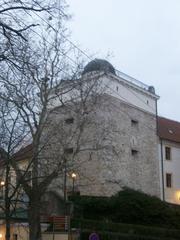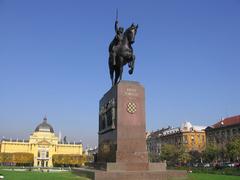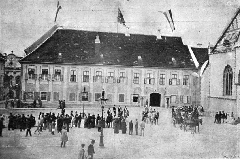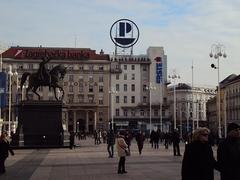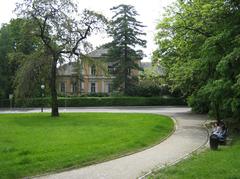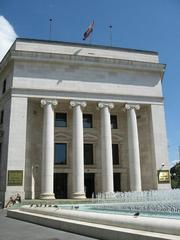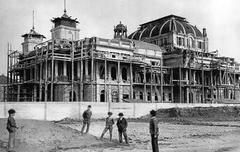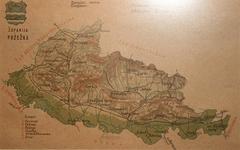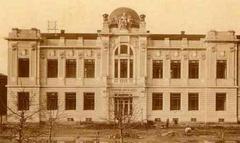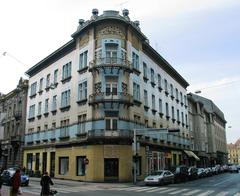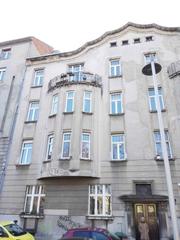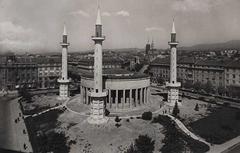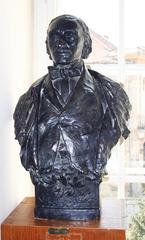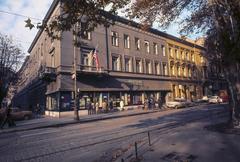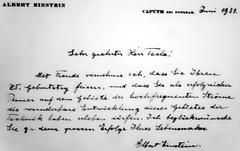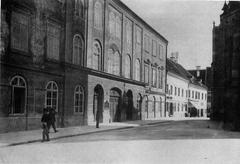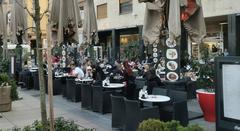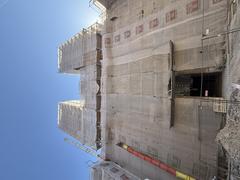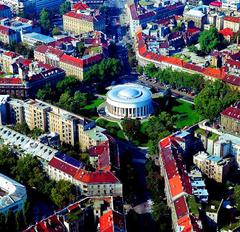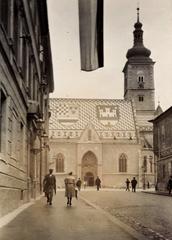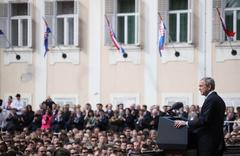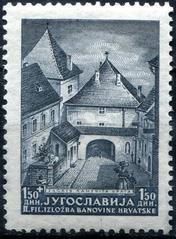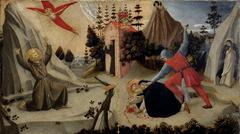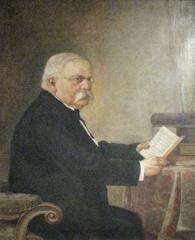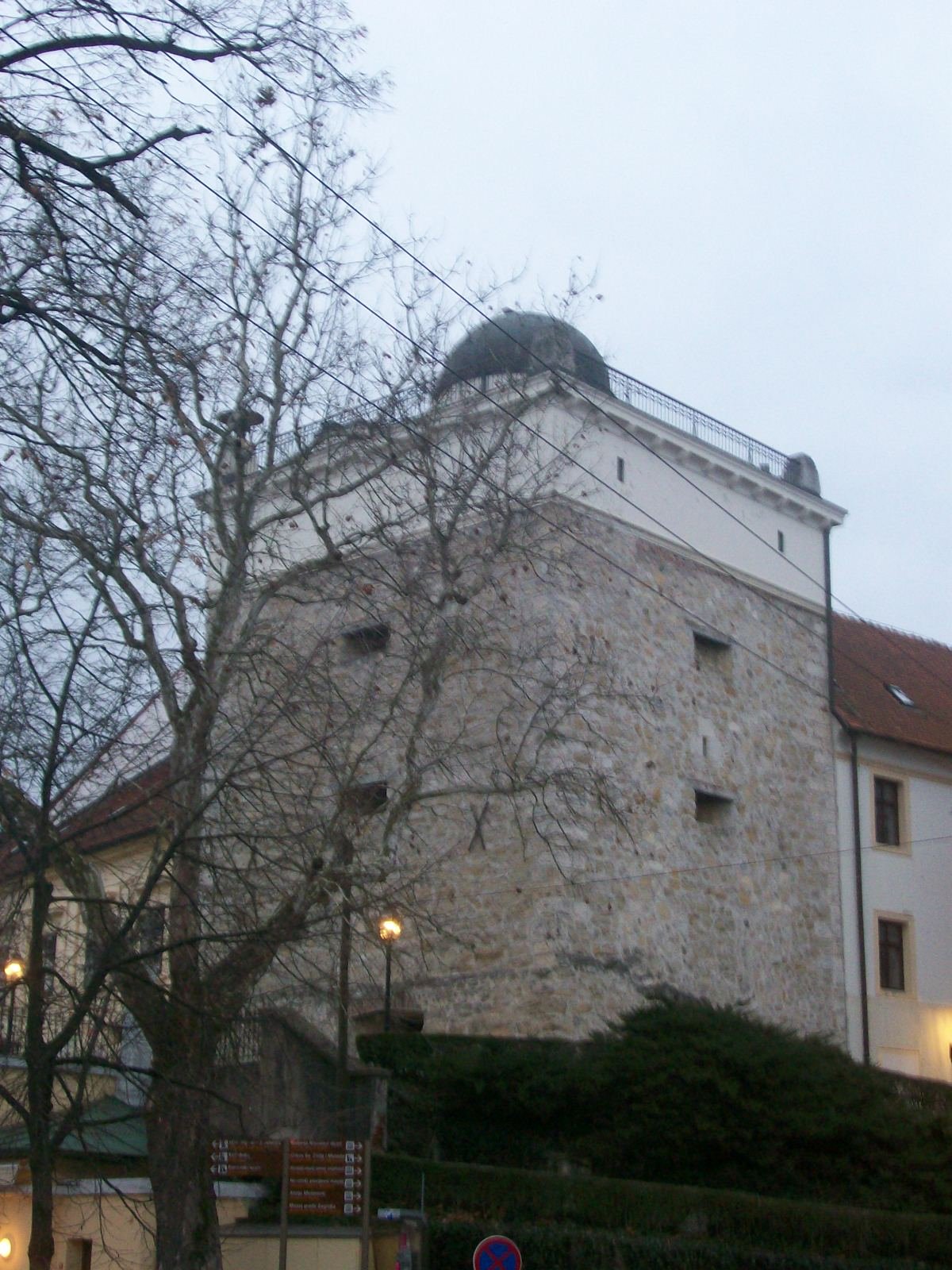
Zagreb Observatory Visiting Hours, Tickets, and Travel Guide
Date: 14/06/2025
Introduction
Perched atop the medieval Popov Tower in Zagreb’s historic Upper Town, the Zagreb Observatory (Zvjezdarnica Zagreb) is both a testament to Croatia’s scientific legacy and a vibrant hub for public engagement with astronomy. Since its founding in 1903, the observatory has seamlessly blended scientific research, cultural enrichment, and architectural heritage. Its unique setting provides not only state-of-the-art telescopic views of the cosmos but also panoramic vistas of the city, making it a must-see destination for both locals and visitors.
This guide offers an in-depth look at Zagreb Observatory visiting hours, ticketing details, guided tours, accessibility, and essential travel tips. Whether you’re a seasoned astronomer, a history buff, or an inquisitive traveler, you’ll find everything you need to plan a memorable visit. For the latest information, always refer to the official Zagreb Observatory website and reputable travel resources (infozagreb.hr; whichmuseum.com).
Historical Overview
Foundation and Early Years
The Observatory was established on December 5, 1903, through the efforts of the Croatian Natural History Society and support from Zagreb’s City Government, which provided the Popov Tower as its home. The site’s elevation above the city’s lower, more polluted quarters made it ideal for celestial observation. The Observatory’s first director, Oton Kučera, defined its mission as fostering both research and the popularization of astronomy among Croatians (zvjezdarnica.hr).
Growth and Recognition
Internationally recognized as early as 1906—when a newly discovered planetoid was named “Croatia” in its honor—the Observatory quickly became a regional center for astronomical outreach. Despite early limitations in resources and staff, it focused on public education, lectures, and science popularization (wikipedia.org; maistra.com).
Mid-20th Century: Challenges and Expansion
World War II forced a temporary closure, but the Observatory rebounded postwar, expanding its educational reach and acquiring a planetarium in 1963 (now part of the Technical Museum). The original telescope was replaced in 1966 with a Zeiss refractor, enhancing both public programs and research (wikipedia.org).
Modernization and Community Engagement
Major renovations in the 1980s and a new dome in 1992 modernized the facility. The Observatory became a focal point for amateur and professional astronomers, serving as headquarters for the Zagreb Astronomical Society and collaborating with other institutions (zvjezdarnica.hr).
21st Century Advancements
Today, the Observatory boasts a 175/1400 mm TMB apochromatic refractor (since 2007), a Zeiss 130/1950 mm refractor for solar observations, and a range of portable telescopes and astrophotography equipment. Its facilities include a lecture room, library, and dedicated astrophotography spaces, supporting a robust program of public events and educational activities (zvjezdarnica.hr; whichmuseum.com).
Visitor Information: Planning Your Visit
Location
- Address: Opatička 22, Upper Town (Gornji Grad), Zagreb
- Access: Easily reached by foot from the main square or via the Zagreb funicular. Be prepared for a short uphill walk along cobblestone streets.
Visiting Hours
- Regular Public Sessions: Wednesdays and Thursdays, 21:00–22:30 (weather permitting).
- Special Events: Additional lectures and observation nights are scheduled throughout the year; always check the official visiting hours before planning.
Tickets and Admission
- Adults: 30 HRK
- Students & Seniors: 20 HRK
- Children under 7: Free
- Group Discounts: Available for groups of 10+
- Special Events: May require advance tickets or reservations.
- Booking: Tickets can be bought onsite or online via the official website.
Accessibility
- The observatory is located in a historic building accessible only by stairs (no elevator). Visitors with mobility challenges should contact staff in advance.
- Restroom facilities are available onsite.
Facilities
- Lecture Room: Seats up to 50 for talks and workshops.
- Astrophotography Room: Equipped for celestial imaging.
- Library: Offers books and resources in astronomy.
- Observation Dome & Terrace: Main areas for stargazing events.
- No café/gift shop: Nearby Upper Town cafés and restaurants provide refreshments.
Guided Tours, Courses, and Events
- Guided Tours: Led by astronomers and knowledgeable volunteers, covering the Observatory’s history, equipment demonstrations, and basics of astronomy.
- Observation Sessions: Weather permitting, visitors can observe planets, the Moon, and bright stars through the main refractor.
- Educational Programs: Courses for students and the public, summer schools, competitions, and public lectures.
- Special Events: Lunar eclipses, meteor showers, and themed nights; advance booking is advised due to popularity.
Equipment and Scientific Resources
- Main Telescope: TMB APO 175/1400 mm refractor (night and solar observations).
- Secondary Telescopes: Zeiss 130/1950 mm refractor (solar, Hα), Coronado PST Hα 40/400 mm (solar prominences).
- Portable Telescopes: Celestron 200/2000 mm Schmidt-Cassegrain, Konus 80/900 mm refractor, binoculars.
- Scientific Instruments: Cosmic ray and SID monitors for space weather research (zvjezdarnica.hr).
Practical Travel Tips
Best Time to Visit
- Shoulder Seasons (May–June, Sept–Oct): Best weather, fewer crowds.
- Summer Evenings: Popular for stargazing but busier.
- Winter: Reduced hours, check ahead for visibility and event schedules.
What to Bring
- Comfortable shoes for cobblestone streets and stairs
- Warm clothing for cool evenings
- Camera (ask staff about photography policies)
- Reusable water bottle
Language
- Staff speak English and Croatian; interpretive materials provided in both.
Safety and Etiquette
- Use flashlights/mobiles sparingly during observations.
- Food and drinks are prohibited near telescopes.
- Maintain quiet during sessions.
Payment
- Credit cards accepted; cash recommended for small purchases.
Nearby Attractions
- Strossmayer Promenade: Scenic city views.
- Lotrščak Tower: Noon cannon firing tradition.
- St. Mark’s Church: Iconic tiled roof and historic architecture.
- Museum of Broken Relationships: Internationally recognized museum.
- Local Cafés and Art Galleries: Perfect for relaxing before or after your visit.
Frequently Asked Questions (FAQ)
Q: What are the Zagreb Observatory’s visiting hours?
A: Wednesdays and Thursdays, 21:00–22:30, weather permitting. Special events may have different timings.
Q: How do I buy tickets?
A: Onsite or online via the official website.
Q: Are there discounts for students or groups?
A: Yes, discounted rates for students, seniors, children, and groups.
Q: Can I take photos through the telescope?
A: Sometimes, especially during special astrophotography events—ask staff for details.
Q: Is the Observatory wheelchair accessible?
A: No, due to the historic stairs. Contact staff for guidance.
Q: Does the Observatory offer educational programs?
A: Yes, including guided tours, lectures, summer schools, and workshops.
Summary Table: Key Visitor Information
| Aspect | Details |
|---|---|
| Location | Opatička 22, Upper Town, Zagreb |
| Opening Hours | Wednesdays & Thursdays, 21:00–22:30; check official site |
| Admission | Adults: 30 HRK; Students/Seniors: 20 HRK; Children under 7: Free |
| Accessibility | Stairs only; not wheelchair accessible |
| Facilities | Restrooms, lecture room, library, observation dome |
| Languages | Croatian, English |
| Payment | Credit cards accepted; cash for small purchases |
| Best Time to Visit | May–June, Sept–Oct; clear evenings |
| Contact | Official website |
Visual Experience
- Images: Show the Observatory exterior, main telescopes (TMB APO 175/1400 mm refractor), and public stargazing events.
- Alt Tags: Use keywords such as “Zagreb Observatory visiting hours” and “Zagreb historical sites.”
- Interactive Map: Embed or link to a map showing the Observatory’s Upper Town location.
Conclusion and Next Steps
The Zagreb Observatory stands as a beacon of scientific curiosity and cultural heritage in the heart of Croatia’s capital. Whether you attend a stargazing session, join an educational workshop, or simply enjoy the panoramic city views, your visit promises discovery and inspiration. For the best experience, check current Zagreb Observatory visiting hours, secure your tickets in advance, and follow the Observatory’s social media for real-time updates.
For further exploration, download the Audiala app for guided tours and event updates, and explore related articles on Zagreb’s historic and scientific attractions.
Sources
- Zagreb Observatory: Visiting Hours, Tickets, and Exploring Zagreb’s Historic Astronomical Landmark, 2025, Croatian Natural History Society
- Visiting Zagreb Observatory: Hours, Tickets, and Historical Significance, 2025, Zagreb Astronomical Society
- Zagreb Observatory Visiting Hours, Tickets, and Facilities Guide, 2025, Zagreb Observatory Official Site
- Zagreb Observatory Visiting Hours, Tickets, and Visitor Guide to Zagreb’s Historical Sites, 2025, WhichMuseum
- Zagreb Observatory, Wikipedia, 2024
- Zagreb Observatory - The Astronomical Association of Zagreb, InfoZagreb, 2024
- The Zagreb Observatory: A Place with the Most Beautiful View of the Sky and the Stars Above Zagreb, Maistra, 2024
